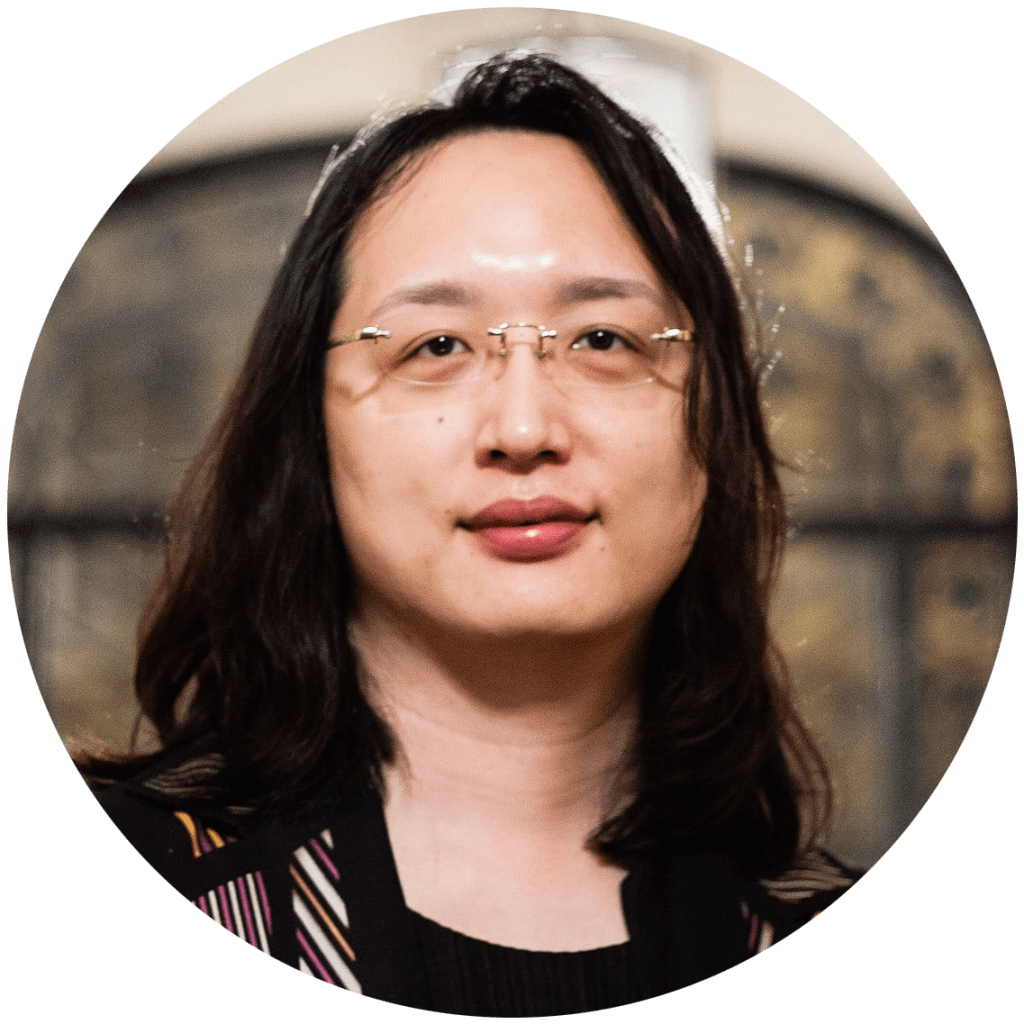Opening Plenary Session: Monday, April 1
EXP 8th Floor (Boston, MA) & Virtual | 6 p.m. ET
Welcome to AI in Action: a week dedicated to finding inspiration, driving innovation, and forging meaningful connections in the exciting world of artificial intelligence! The week begins on Monday, April 1 at 6 p.m. ET on the 8th floor of EXP with the Opening Plenary Session. The ceremony will feature our distinguished guest, Steve Chien, a renowned computer scientist and artificial intelligence leader in robotic space exploration. Chien’s address will explore “Artificial Intelligence in Space and the Hunt for Extraterrestrial Life.”

Keynote Speaker:
Steve Chien
JPL Fellow, Senior Research Scientist, Artificial Intelligence, Autonomous Systems; Jet Propulsion Laboratory, California Institute of Technology / NASA
Steve Chien is a Technical Fellow, Senior Research Scientist, and Co-Head of the Artificial Intelligence Group at NASA’s Jet Propulsion Laboratory, California Institute of Technology. He has played a key role in the deployment of AI software to a wide range of NASA missions including Autonomous Science craft on EO-1, Earth Observing Sensor web, WATCH on MER, IPEX, ESA’s Rosetta, ECOSTRESS, OCO-3, EMIT, and the M2020 Perseverance Rover. Under Dr. Chien’s leadership, the JPL Artificial Intelligence Group has additionally deployed AI software to several other billion-dollar missions or enterprises, including the Deep Space Network, AEGIS on MSL and M2020, and the upcoming NISAR mission.
Dr. Chien was recognized four times in the NASA Software of the Year competition (1999, 1999, 2005, and 2011), and received four NASA Medals for his work in AI for Space. In 2011, he was awarded the inaugural AIAA Intelligent Systems Award for his contributions to Spacecraft Autonomy.
Dr. Chien’s work with the United States Government has included providing expert testimony to the U.S. Senate and offering specialized knowledge to the Office of the Undersecretary of Defense – Research and Engineering, the Defense Science Board, and the USAF Scientific Advisory Board. From 2018 to 2021, he served as a Congressionally-appointed member of the National Security Commission on Artificial Intelligence (nscai.gov). Presently, Dr. Chien is a member of the Army Science Board, where he continues to share his expertise as an AI subject matter expert.
Dr. Chien holds a B.S. in Computer Science with concentrations in Economics and Mathematics, an M.S. in Computer Science, and a Ph.D. in Computer Science (Artificial Intelligence, Machine Learning), all from the University of Illinois at Urbana-Champaign.
Closing Plenary Session: Friday, April 5
Co-hosted by the Burnes Center for Social Change
Alumni Center (Boston, MA) & Virtual | 12 p.m. ET
The week will culminate with the Closing Plenary Session on April 5 at 12 p.m. ET at the Alumni Center, where we’ll hear from Northeastern’s own Beth Simone Noveck, Director of the The Burnes Center for Social Change, as she introduces and honors Audrey Tang, Taiwan’s Minister of Digital Affairs. Tang’s work focuses on leveraging technology to enhance government transparency and leading Taiwan to an inclusive digital era. Tang and Noveck will discuss “Rebooting Democracy in the Age of AI.”

Keynote Speaker:
Audrey Tang
Minister of Digital Affairs, Taiwan; TIME Magazine 100 Most Influential People in AI 2023 Honoree
Audrey Tang (唐鳳)is a Taiwanese free software programmer and the inaugural Minister of Digital Affairs of Taiwan. Described as one of the “ten greatest Taiwanese computing personalities,” Tang became the first transgender and the first non-binary official in Taiwan’s first executive cabinet when elected to the Taiwan Executive Yuan as a minister in 2016.
Tang is known for revitalizing the computer languages Perl and Haskell, as well as building the online spreadsheet system EtherCalc in collaboration with Dan Bricklin.
Tang became involved in politics during Taiwan’s 2014 Sunflower Student Movement demonstrations, in which Tang volunteered to help the protesters occupying the Taiwanese parliament building broadcast their message. The prime minister invited Tang to build media literacy curriculum for Taiwan’s schools, which was implemented in late 2017. Following this work, Tang was appointed minister without portfolio for digital affairs in the Lin Chuan cabinet in August 2016.
Tang took office as the “Digital Minister” and was placed in charge of helping government agencies communicate policy goals and managing information published by the government, both via digital means
While as a conservative anarchist, Tang ultimately desires the abolition of Taiwan and all states, they justify working for the state by the opportunity it affords to promote worthwhile ends. Tang’s conservatism stems from wanting to preserve free public spaces independent from the state, such as Internet properties, and wanting technological advances to be applied humanistically, so that all can reap its benefits rather than a few, to the exclusion of others. Tang’s department does not follow hierarchical or bureaucratic relationships. As of 2017, Tang’s staff of 15 chose to work in the department.
The group produces a weekly roadmap as collaborators, not orders. Tang was quoted as saying, “My existence is not to become a minister for a certain group, nor to broadcast government propaganda. Instead, it is to become a “channel” to allow greater combinations of intelligence and strength to come together.”
Tang’s first initiative, the g0v project, involved swapping out the “o” for a zero in the government’s “gov.tw” top-level domain to view more accessible and interactive versions of those governmental websites. The project was open source, in-line with Tang’s principles, and very popular, as accessed millions of times each month. Another initiative, vTaiwan, uses social media paradigms for citizens to create digital petitions.
Those with 5,000 signatories are brought to the Premier and government ministries to be addressed. Changes implemented through this system include access to income tax software for non-Windows computers, and changes to cancer treatment regulations. The Taiwanese parliament complained that citizens had better access to influence regulation than they did as legislators. As of 2017, Tang was working on sharing economy software that would facilitate the free exchange of resources in abundance instead of the ride-sharing and peer hotel applications for which the technology is known.
As a general practice of “radical transparency”, all of Tang’s meetings are recorded, transcribed, and uploaded on a public website.

Facilitated by:
Beth Simone Noveck
Director, The Burnes Center for Social Change; Professor, College of Social Sciences and Humanities, Northeastern University
Beth Simone Noveck is a professor at Northeastern University, where she directs The Burnes Center for Social Change and its partner projects, the GovLab, and InnovateUS. She is Core Faculty at the Institute for Experiential AI. Beth also serves as Chief AI Strategist for the state of New Jersey and co-chair of the state’s AI Task Force. Beth previously served in the White House as the Deputy Chief Technology Officer and head of the White House Open Government Initiative and as a member of Chancellor Angela Merkel’s Digital Council. Beth’s work focuses on using AI to reimagine participatory democracy and strengthen governance, and she has spent her career helping institutions incorporate more participatory and open ways of working.
